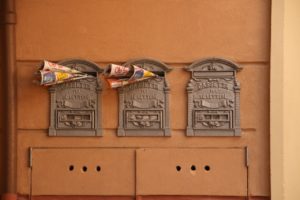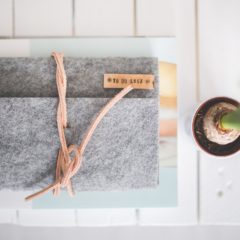 Paper clutter has always been a problem in my home. It use to feel like I was drowning in a sea of paper. So I have put together a few ideas to help reduce the amount of paper that finds its way into the home. These tips have certainly worked for me and hopefully they will for you as well.
Paper clutter has always been a problem in my home. It use to feel like I was drowning in a sea of paper. So I have put together a few ideas to help reduce the amount of paper that finds its way into the home. These tips have certainly worked for me and hopefully they will for you as well.
Newspapers, catalogues and advertising material……
Every week numerous free newspapers, magazines, advertising leaflets and shopping catalogues are dropped onto our driveways and into our mailboxes. While some of us opt to display a ‘No Junk Mail’ notice in the hopes of keeping some of it at bay, I’m sure there are those of you like myself that actually enjoy reading some of these publications.
Even so, paper clutter can accumulate fast and before you know it the kitchen bench or coffee table has disappeared beneath a mammoth pile of reading literature.
When it comes to catalogues, free newspapers and magazines in the mailbox, I find this trick works best for me to keep all that junk mail under control. After I collect the junk mail, I go directly to our recycling bin. Here I can quickly scan and put aside anything I’m interested in reading. The rest doesn’t even make it into the house, it goes straight into recycling.
Containing the junk mail……
I then have a designated spot for junk mail and the likes, which in my house is the drawer beneath my coffee table. Find a designated spot in your home for all reading material, preferably a drawer or basket. Limit the size of the area that paper can accumulate, this will force you to clean it out regularly to prevent it overflowing. Try to keep places like the kitchen bench, dining table, office desk and hall table free of paper clutter.
The day before our fortnightly recycling collection day, I gather up everything that has been there at least a week and out it goes. Anyone in the house has one week to read the items, before they join their friends in the recycling bin. If you haven’t read it by now, you’re not really interested.
Incoming mail and bills……
Handle incoming mail once. Make sure you have time to deal with the mail before you open it. Sometimes we quickly open the mail and flick through before dumping it somewhere like the hallway table or the kitchen bench. The papers then lie around waiting for you to decide their fate with the potential to become lost or forgotten about in the meantime.
Set aside time to go through the mail just as you do with your emails. Make a decision on each item before you move to the next. Place bills in the ‘bills to pay folder’ and mark the due date on your calendar as a reminder. All done in one step.
Is it an item that requires an action? Such as to call somebody. If so try to attend to it straight away, if time doesn’t permit, note the item on tomorrows to do list and place the letter in the ‘action required folder’. The paper item is now where you will be able to find it and you have a reminder on your to-do list.
If the letter is purely informative, decide whether you need to keep it. Place items that you need to retain in the folder marked ‘Items to file’. Alternatively, file them immediately into the filing cabinet or archive box. Throw items straight into the rubbish or place into the shredder, if you aren’t required to keep it. I like to keep my shredder in the office beside my desk, plugged in and ready to go. That way I can shred sensitive information straight away, rather than leaving it to pile up.
Go digital……
Finally, you can minimise paper clutter by switching to digital billing services and receiving electronic correspondence.
You can opt to receive your bank statements electronically and request information at anytime. This means you don’t need to print these out or keep a paper copy. You can check your account activity online at any time.
You can receive most household bills via email or access them online through an account you set up with the company. Your account enables you to view all your account activity, bills due and bills paid as well as pay bills that are currently due.
Keep a list of which bills you have due each month as a reminder to check your emails for invoices. When you receive an electronic bill or invoice be sure to jot down a reminder to pay on the calendar.
Following these few simple guidelines can help reduce the amount of paper clutter in your home.
- Junk mail you aren’t interested in reading goes straight from the mailbox to the recycling bin.
- Have a designated spot for reading materials.
- Clean it out on a regular basis, such as weekly or fortnightly.
- Handle incoming mail once.
- File incoming mail in its proper place as soon as you open it.
- Immediately dispose of mail that you do not need to retain.
- Set up an effective filing system for bills and important papers.
- Switch to digital billing services rather than receiving paper bills and bank statements.
- Opt to receive electronic correspondence.
Do you need help to begin decluttering your home? Iv’e put together some great tips to get you started. Click on the link to read more: Decluttering Top Tips to get you started.

Elegant-Organised-Stylish-Functional
Organised Chic’




